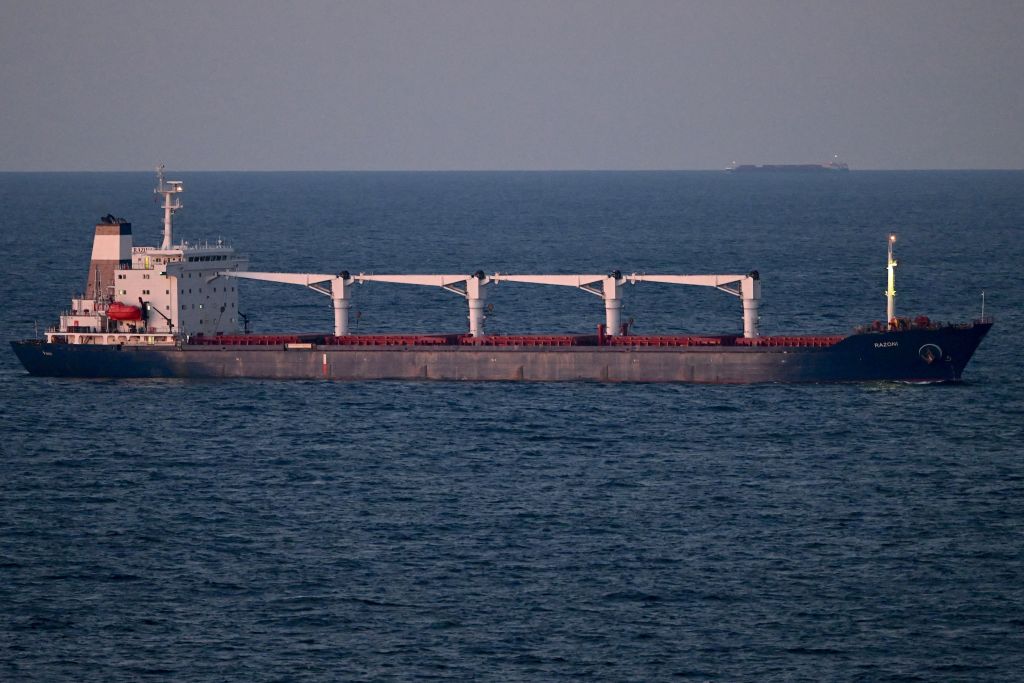ADF STAFF
The Russian invasion of Ukraine in early 2022 disrupted grain shipments to countries across Africa. In response, Russia has begun shipping free grain to six African countries, but those shipments come with strings attached.
According to Zimbabwean economist Godfrey Kanyenze, Russia is exploiting the suffering of African citizens for its own benefit. Kanyenze is the founding director of Zimbabwe’s Labor and Economic Research Institute.
“It’s strategic in the sense that Russia realizes these countries are in need, and basically takes advantage of that specific need,” Kanyenze told CNN. “It’s geopolitics at play. The major string is to control or get a head start ahead of other rivals or competitors.”
Zimbabwe is one of six African countries to receive the free grain shipments, despite increasing its own grain production in recent years. Other Russian grain recipients include Burkina Faso, Central African Republic, Eritrea, Mali and Somalia.
Russia has delivered about 200,000 metric tons of grain to the six countries since November 2023. That’s a sliver of the 60 million metric tons the country exports in a year. Russia is hoping to take advantage of the food shortage it helped create and strengthen its ties with those countries.
Beyond the free grain shipments, Russia plans to earn $33 billion from selling food to African countries.
The country is also using its grain shipments to reinforce its connections with unstable countries, particularly where it has deployed Wagner Group mercenaries, now renamed as African Corps. Russian troops currently are deployed to grain recipients Burkina Faso, CAR and Mali. Russian troops are also in Libya, which is not part of the grain deal. They have also aided Sudan’s paramilitary Rapid Support Forces (RSF) in their fight with the Sudan Armed Forces (SAF).
Grain deliveries are just the latest way Russia has sought to exert its influence in Africa. In recent years:
- Burkina Faso has welcomed about 100 Russian troops and a new Russian embassy.
- The CAR has given Russian forces significant influence over the country’s customs, presidential security and, more recently, welcomed a Russian military base.
- Eritrea voted against a United Nations resolution demanding that Russia withdraw its troops from Ukraine.
- Mali will receive a Russian-built gold refinery.
Nearly a quarter of Malians are facing a food shortage due to more than a decade of fighting and displacements. About 15% of Burkina Faso residents are similarly struggling with food insecurity, according to the United Nations World Food Program.
Historically, about half of African countries have depended on grain imports from Russia and Ukraine to feed their populations. Eritrea and Somalia are among the African countries that sourced almost all their grain from both Russia and Ukraine before the conflict, according to the United Nations.
The United Nations and Turkey brokered an agreement in 2022 between Russia and Ukraine known as the Black Sea Grain Initiative that allowed 32.9 million metric tons of food to be exported from Ukraine starting in August.
Russia pulled out of that initiative in mid-2023 and bombed Ukraine’s ports to prevent it from shipping grain. At the same time, Russia expanded its exports. Russia has said it expects to ship another 70,000 metric tons to its African recipients this year.
“The war in Ukraine and the current polarized global environment can play out in different parts of Africa, including in Somalia,” Nisar Majid, who manages the Somalia country program at the London School of Economics, told Bloomberg. “And food aid becomes just part of that game.”

